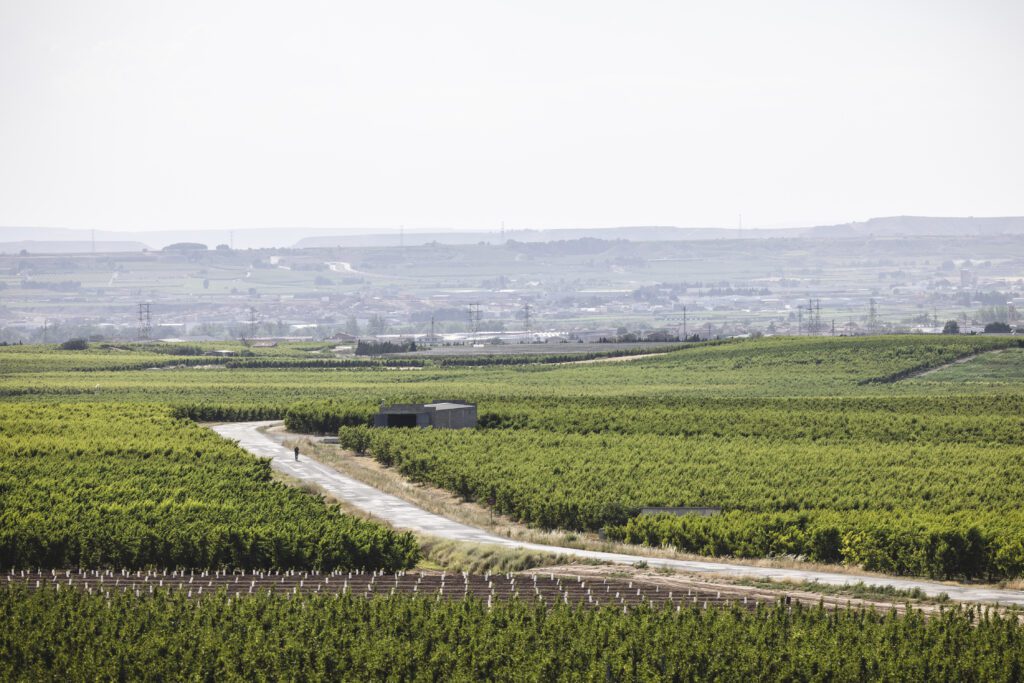MADRID TO BARCELONA
THE ROUTE
Discover the beauty of the unknown in the space between the two largest cities of the Iberian Peninsula.
The journey between these two important cities is usually done by plane, AVE (High Speed Train) or by fast highways (A2/AP-2). The landscapes that land transport offers us in this case are quite monotonous and it was for this reason that we decided to discover what alternatives existed.
The result has been the track that you will have the opportunity to complete with your bike where the perception of this route between the two big cities will surprise you. Being able to pedal on very quiet, varied and different roads along the route and with a special beauty.
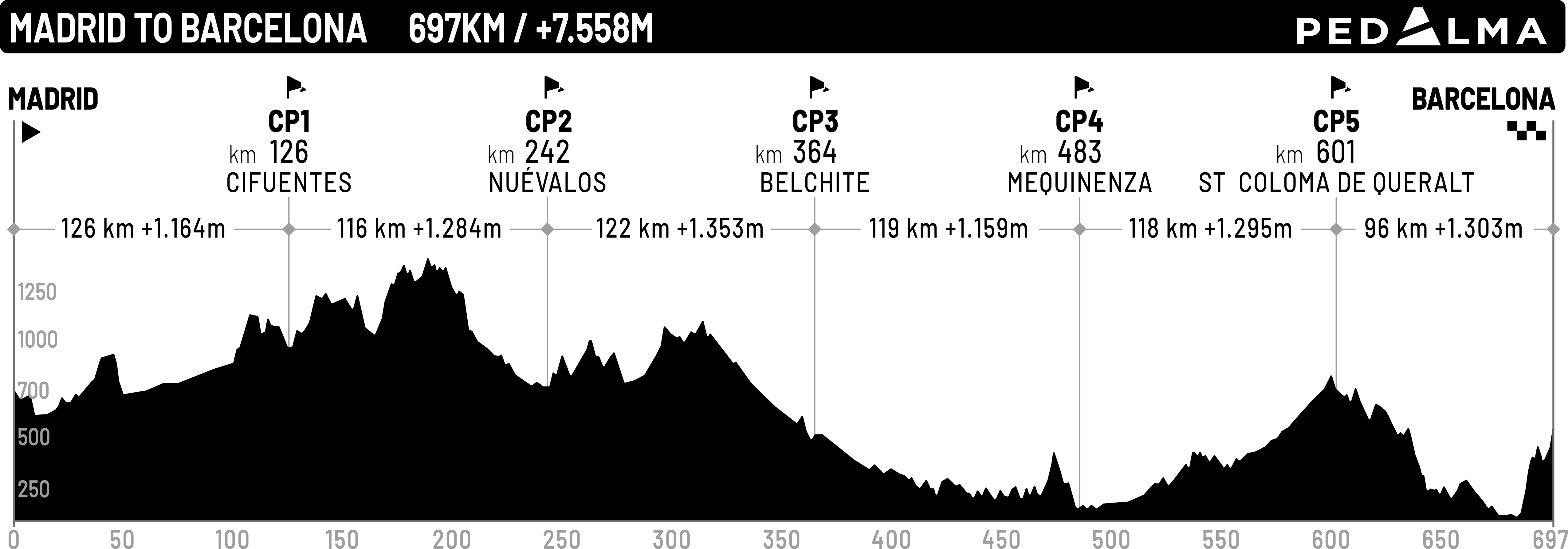
BRIHUEGA
Brihuega is considered one of the most beautiful towns in the province of Guadalajara. It was the scene of several battles during the succession war, the civil war or the battle of Guadalajara.
In the 18th century, the Brihuega cloth factory was built, a construction that would house a new city, opening the door to the arrival of technicians, artisans, spinners and machines.
Although the track does not pass through the Brihuega village, it does allow us to have good panoramic views of the municipality. The track does allow us to enjoy its characteristic lavender fields.
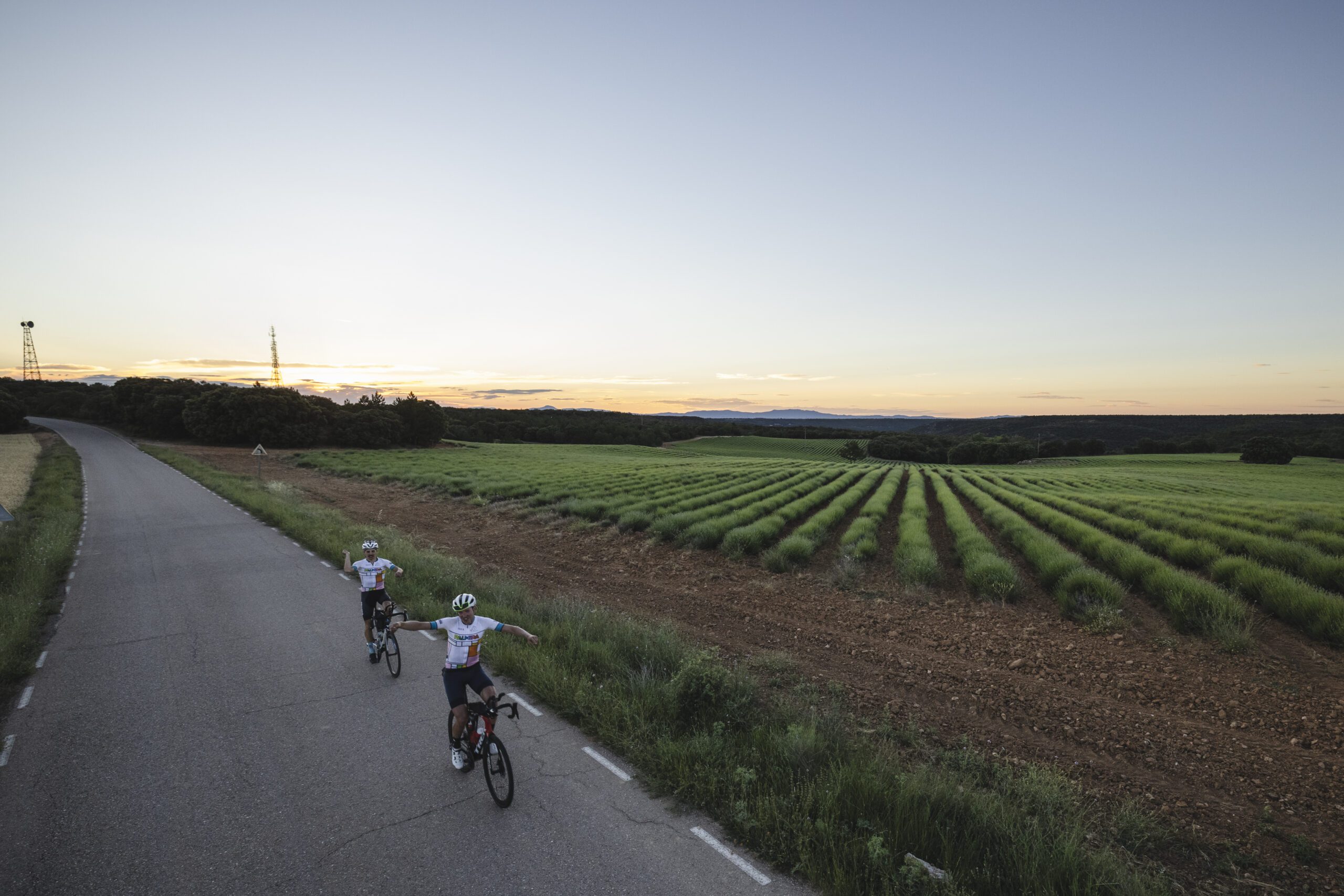
RIVER MESA VALLEY
After crossing the high elevated area of Maranchón, the route descends towards the valley of the Mesa River.
Ahead of us, 30 km await us along the quiet road that follows the course of this river until it reaches its mouth in the Tranquera reservoir. The reservoir will be our gateway to the province of Zaragoza.
Throughout these 30km we will go through small towns, areas with small orchards that benefit from the flow of water, or the gorges of the Mesa River, very spectacular with their walls over 100m high.
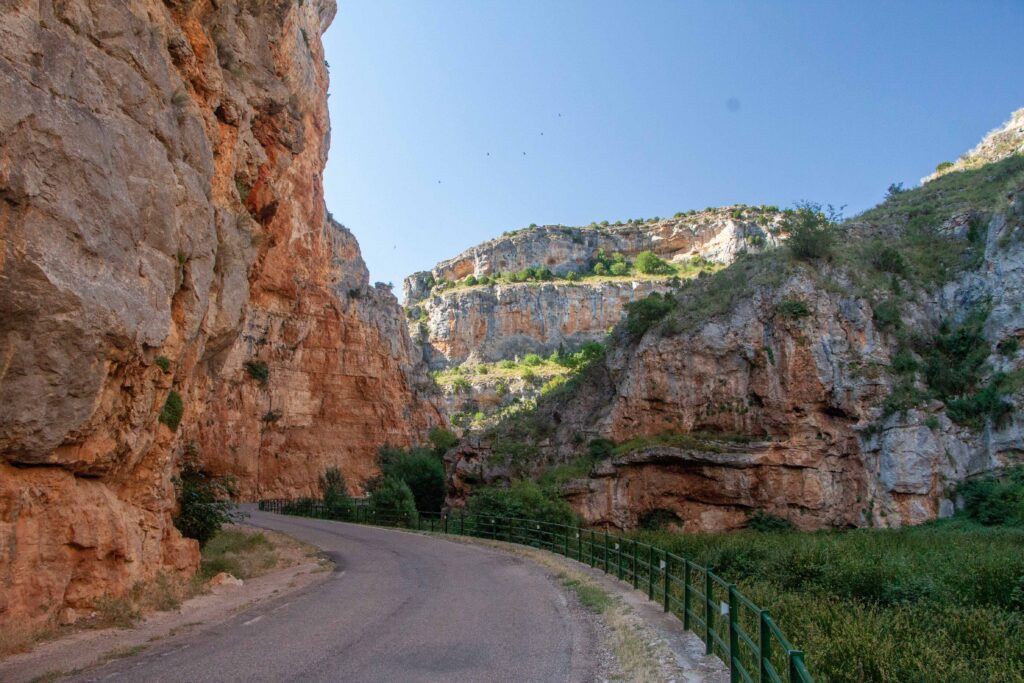
DAROCA
Due to its geographical location, Daroca was a place through which several civilizations have passed.
What is now its main street, characteristic for its paved ground, was in the past a ravine that conducted water and served to supply irrigated crops. Celtiberians, Arabs, They were present in its initial phases of creation and over the years it was an enclave of different historical events.
Currently, its imposing wall welcomes us and allows us to access through its great city gate to a space that still preserves much of its historical architecture.
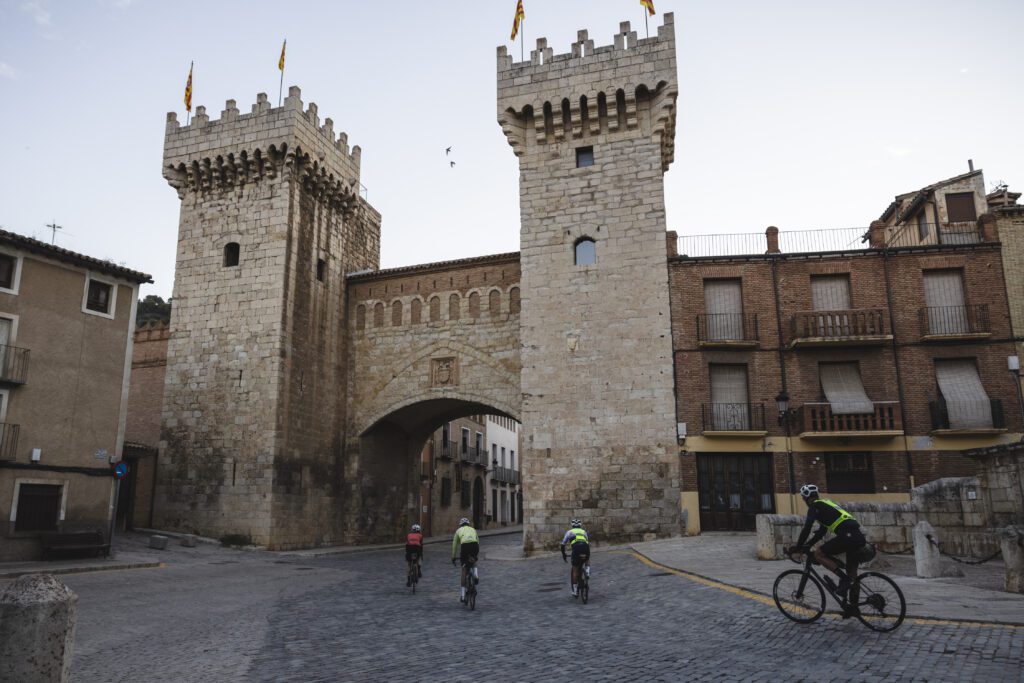
BELCHITE
The town of Belchite was the scene in 1937 of the Battle of Belchite, during the Spanish Civil War. After the battle, a completely new town was built next to the original one and today you can see the ruins of what was the original town.
At the level of our route, it will be the intermediate point from Madrid to Barcelona and a turning point in terms of landscape, after Belchite we will pedal through areas with very little population, long and flat straight lines between fields of cereal crops.
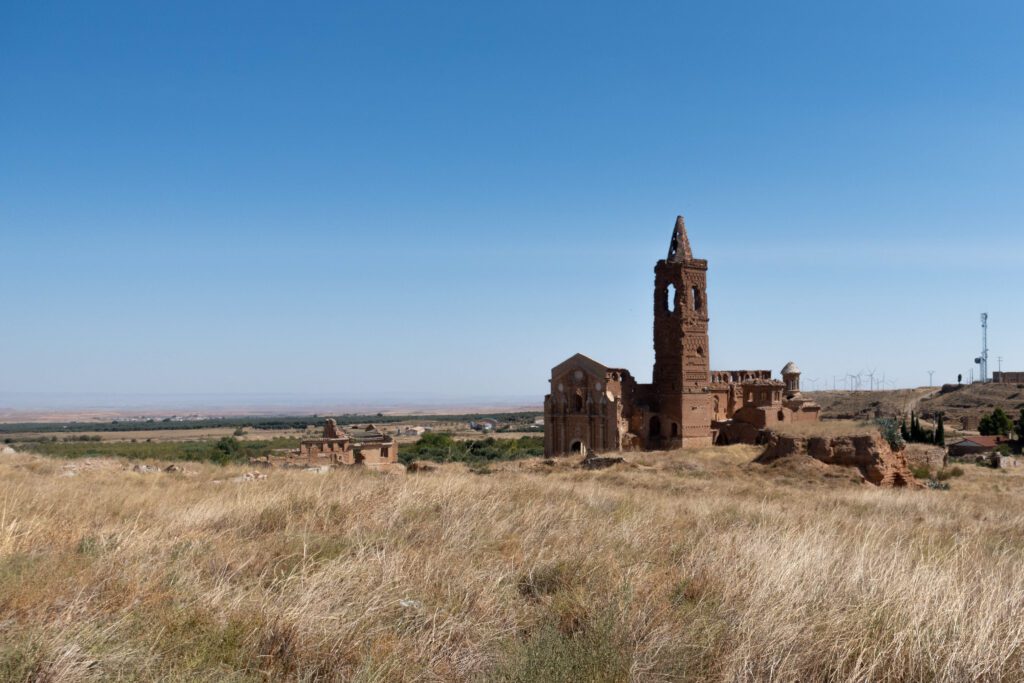
MEQUINENZA
Mequinenza will be the last large urban center in the province of Zaragoza before entering Catalonia, after crossing its great bridges over the Ebro and Segre rivers.
The town is located in the area known as “La Franja” where Catalan is spoken. Due to its geographical location in Mequineza, it based part of its economy on mining, with the extraction of coal and also on sport fishing, in its reservoirs, as well as the practice of water sports.
Its imposing Castle located in the highest area will be visible to us practically throughout our passage through the town.
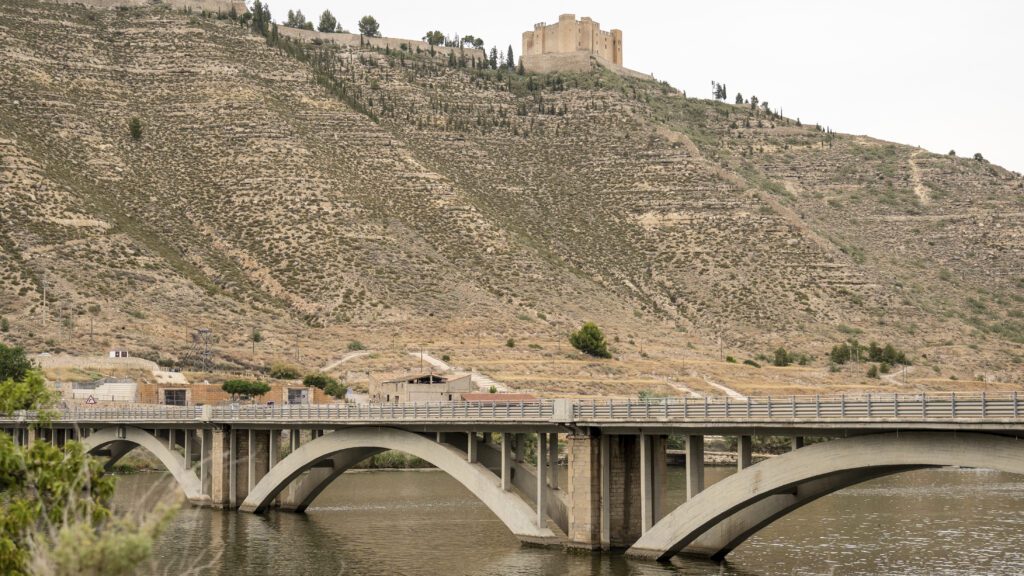
FIELDS OF LLEIDA
We will enter Catalonia through the province of Lleida. The landscape at this point of the route changes again.
Here we will find large cultivation surfaces. Lots of fruit trees, but also an orchard and extensive cereal cultivation. The proximity of the Segre river and the construction of large irrigation infrastructures make this area an important point of agricultural production.
Its small towns, the agricultural cooperatives or the vehicles used to carry out tasks in the field will accompany us throughout the passage through this area.
